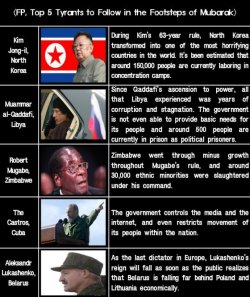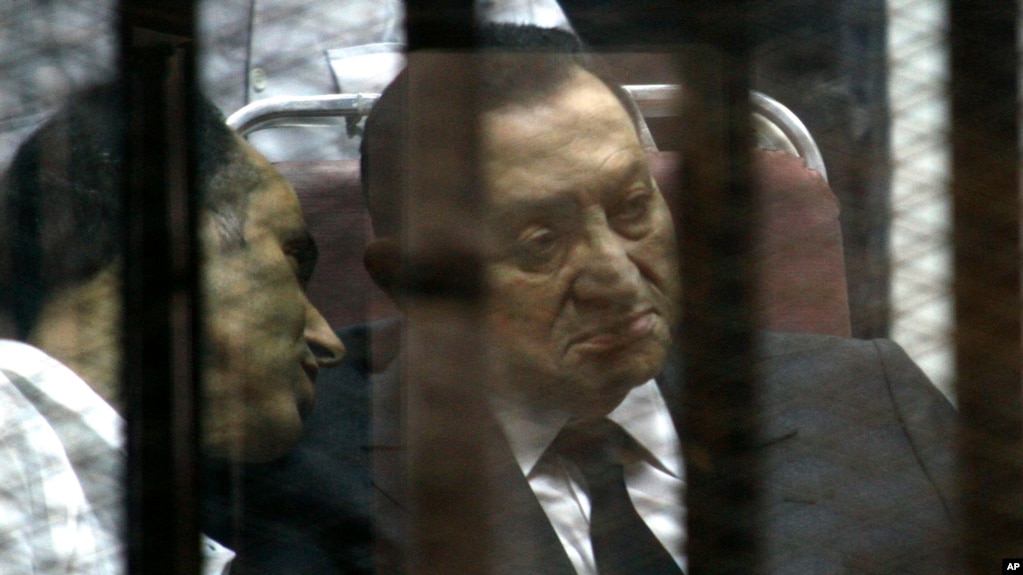- Banned
- #1
Who's Next? - A List By Freedom House | Foreign Policy
With Hosni Mubarak stepping down in Egypt, tyrants around the world may be anxiously wondering who will be the next to fall. Here are some gentle suggestions.
US magazine Foreign Policy picked out top 5 tyrants that are most likely to follow in the footsteps of Mubarak, who recently stepped down from power. These candidates are Kim Jong-il of North Korea, Muammar al-Qaddafi of Libya, Robert Mugabe of Zimbabwe, The Castros of Cuba, and Aleksandr Lukashenko of Belarus, in this order. As the aftereffect of Egyptian revolution is being felt around the globe, such prediction is drawing much attention.
While totalitarian regime in a modern society seems out of place, it certainly exists and is prevalent in some parts of the world. Such outdated dictatorship should be eradicated once and for all.
(btw these dictators are probably wetting their pants over the possibility of losing control lol)
Attachments
Last edited:





